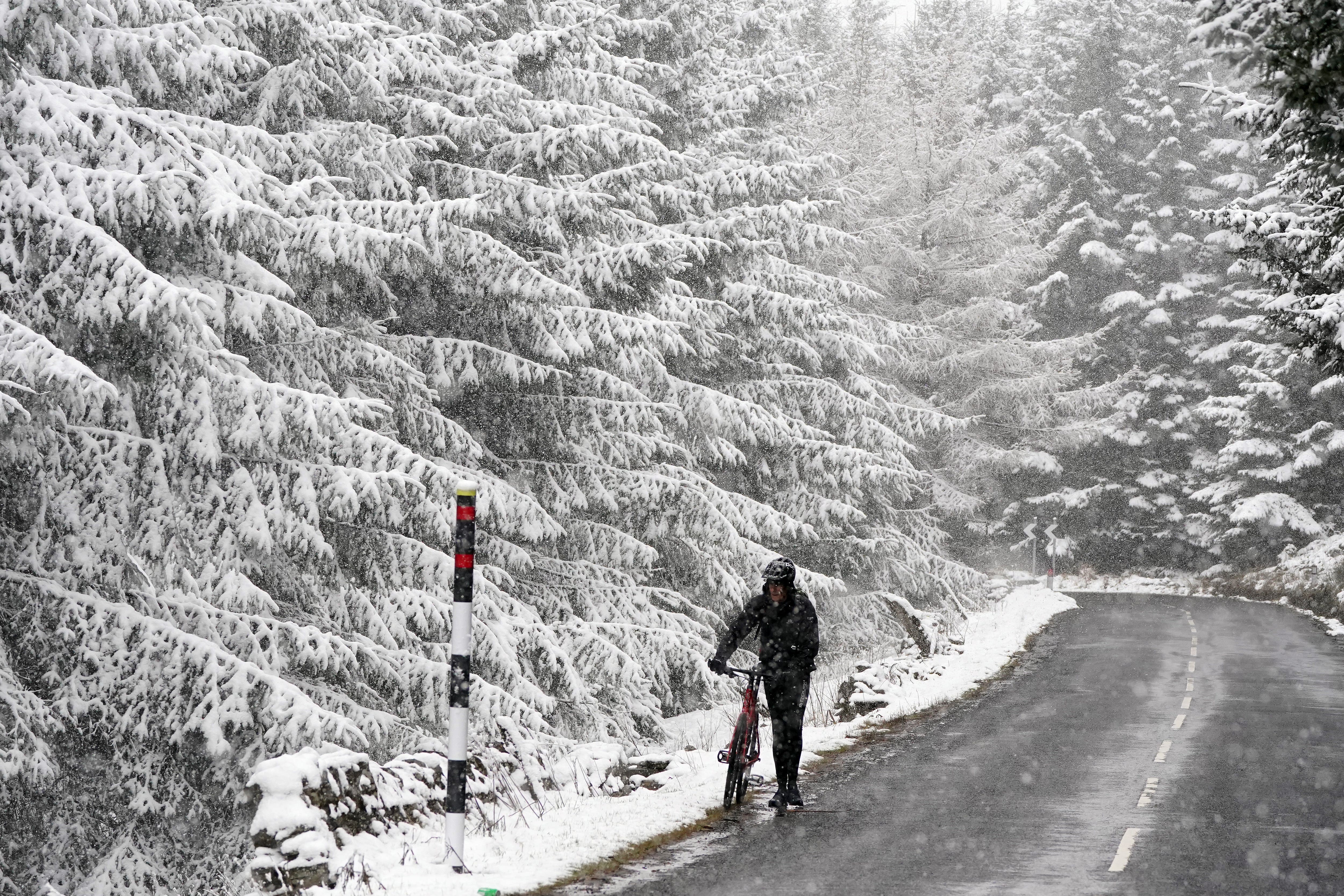Severe cold weather to hit UK as temperatures plunge
A cold weather alert warns of severe conditions between 6pm on Wednesday and 9am on Monday, December 12.

Your support helps us to tell the story
From reproductive rights to climate change to Big Tech, The Independent is on the ground when the story is developing. Whether it's investigating the financials of Elon Musk's pro-Trump PAC or producing our latest documentary, 'The A Word', which shines a light on the American women fighting for reproductive rights, we know how important it is to parse out the facts from the messaging.
At such a critical moment in US history, we need reporters on the ground. Your donation allows us to keep sending journalists to speak to both sides of the story.
The Independent is trusted by Americans across the entire political spectrum. And unlike many other quality news outlets, we choose not to lock Americans out of our reporting and analysis with paywalls. We believe quality journalism should be available to everyone, paid for by those who can afford it.
Your support makes all the difference.Severe cold weather is set to hit the UK this week, with overnight temperatures predicted to plunge to as low as minus 10C in some areas.
The Met Office and UK Health Security Agency (UKHSA) have issued a severe cold weather alert for England, as they warned the plummeting temperatures could increase health risks to vulnerable people and disrupt deliveries.
The level three, or amber, cold weather alert was issued on Monday morning and warns of severe conditions in England between 6pm on Wednesday and 9am on Monday, December 12.
The alert requires social and healthcare services to take action to protect high-risk groups.
Temperatures are expected to turn colder across much of the UK late on Wednesday and through Thursday as air from the Arctic spreads south across the country.
Showers will turn more wintry as the week goes on with a risk of snow at times
Met Office deputy chief meteorologist Rebekah Sherwin said: “Temperatures will start to dip this week, with daytime temperatures struggling to get above freezing in many places from mid-week onwards.
“However, the cold air from the Arctic will also bring brighter conditions, with some dry, sunny spells in many areas, particularly away from the coast.
“Showers will turn more wintry as the week goes on with a risk of snow at times.
“A yellow National Severe Weather Warning for snow has been issued for Wednesday covering northern Scotland.
“We can expect to see some snow and wintry showers further south as the week progresses, particularly in coastal areas or over higher ground. There will be widespread frosts with temperatures falling to as low as minus 10C overnight in isolated spots by the end of the week.”
Downing Street on Monday said it was confident that the UK has sufficient energy supplies to get through the cold period.
Dr Agostinho Sousa, consultant in public health medicine at the UK Health Security Agency (UKHSA), said older people and those with heart or lung conditions are particularly at risk from the cold weather, adding: “If you have a pre-existing medical condition, you should heat your home to a temperature that is comfortable for you.
“In rooms you mostly use such as the living room or bedroom, try to heat them to at least 18°C if you can. Keep your bedroom windows closed at night. Wearing several layers of clothing will keep you warmer than one thicker layer.”
The RAC has advised motorists to check their vehicles are “winter ready”, with properly inflated tyres that have good tread.
Rod Dennis, RAC spokesperson, said: “With temperatures plummeting this week, many drivers might be taken aback by the cold after an exceptionally mild autumn.
“Drivers with older batteries in their cars might also wish to give their vehicle a 20-minute drive before colder conditions arrive to ensure the battery can cope with sub-zero temperatures.”
The Met Office’s cold weather alert system operates in England from November 1 to March 31, every year, in association with the UKHSA.
The system comprises five levels of response based on cold weather thresholds which are designed to trigger an alert when severe cold weather is likely to significantly affect people’s health.